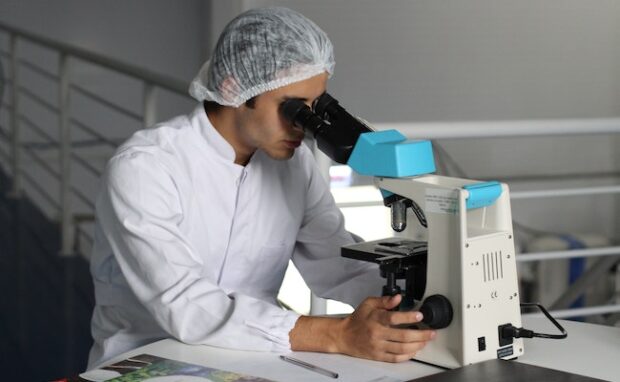AI antibiotic drug will soon treat deadly superbug
Scientists used artificial intelligence to discover a new antibiotic medicine that can eliminate a deadly superbug. They created an experimental antibiotic called abaucin to beat Acinetobacter baumannii or A. baumannii. It often infects hospitals, so the AI antibiotic drug could become a significant boon to healthcare facilities worldwide.
We often see artificial intelligence applied to consumer electronics and software. Yet, AI improves numerous industries most people don’t notice. This AI antibiotic breakthrough is an example of this technology potentially saving millions of lives.
This groundbreaking proves AI is more than chatbots and generative programs. Hence, this article will discuss how researchers used artificial intelligence to create a drug for an antibiotic-resistant superbug. Later, I will cover its widespread implications for medical research.
How did the researchers create an AI antibiotic drug?
Artificial intelligence has helped scientists discover an experimental antibiotic that can kill a deadly species of superbug https://t.co/DGEHGBZWGy
— BBC Breaking News (@BBCBreaking) May 25, 2023
Researchers from McMaster University and the Massachusetts Institute of Technology lead this monumental study. They posted their findings on the Nature Chemical Biology website, but the BBC explained them in layman’s terms.
The British news outlet said the scientists started by training their artificial intelligence system. They chose thousands of drugs with known chemical structures and tested them on Acinetobacter baumannii to discover which could slow down or eliminate it.
Then, the researchers unleashed their AI on a list of 6,680 compounds with unknown effectiveness. It took an hour and a half to produce a shortlist.
Next, the scientists tested 240 in the laboratory and found nine potential antibiotic treatments. The incredibly potent antibiotic abaucin was one of them.
Lab tests showed it could treat infected wounds in mice. More importantly, it could kill A. baumannii samples from patients. Yet, Dr. Jonathan Stokes from McMaster University told BBC correspondent James Gallagher, “This is when the work starts.”
The researchers must refine the medicine in the laboratory and perform clinical trials. Dr. Stokes expects the first batch may take until 2030, until ready for prescriptions.
The best thing about this AI antibiotic medicine is it only works on A. baumannii. In contrast, other antibiotics kill bacteria indiscriminately, promoting the creation of drug-resistant germs.
You may also like: AI Tool Checks Heart Risks In Less Than A Minute
The researchers say abaucin may lead to fewer side effects. Its discovery may help eliminate one of the bacteria requiring antibiotic treatments.
The World Health Organization included A. baumannii in its “priority pathogens” list. This bacterium has innate abilities to resist antibiotics and turn other bacteria drug-resistant.
The Guardian reports the superbug can live on environmental surfaces and shared equipment for prolonged periods. As a result, it significantly threatens hospitals.
How does the AI antibiotic study impact healthcare research?
The McMaster University website shared an article about its researchers’ latest discovery. It says traditional methods are too time-consuming, costly, and limited in scope for developing new treatments against A. baumannii.
The academic article also shared lead researcher Dr. Jonathan Stokes’ statements. “This work validates the benefits of machine learning in the search for new antibiotics.”
“Using AI, we can rapidly explore vast regions of chemical space, significantly increasing the chances of discovering fundamentally new antibacterial molecules.”
You may also like: AI Glasses For The Speech-Impaired
“We know broad-spectrum antibiotics are suboptimal and that pathogens have the ability to evolve and adjust to every trick we throw at them.”
“AI methods afford us the opportunity to vastly increase the rate at which we discover new antibiotics, and we can do it at a reduced cost. This is an important avenue of exploration for new antibiotic drugs.”
James J. Collins, a member of Dr. Stoke’s team, says, “AI approaches to drug discovery are here to stay and will continue to be refined. We know algorithmic models work. Now, it’s a matter of widely adopting these methods to discover new antibiotics more efficiently and less expensively.”
Conclusion
Artificial intelligence helped university researchers create a treatment for an infamously drug-resistant bacterium. As a result, they could eliminate one of the pathogens on WHO’s urgent list.
Dr. Jonathan Stokes explained AI methods could significantly improve drug research. Soon, we may find new cures for previously untreatable diseases at record speeds and low costs.
Did you know you can improve your life with artificial intelligence? Follow Inquirer Tech for the latest in artificial intelligence, gadgets, and other digital trends.
